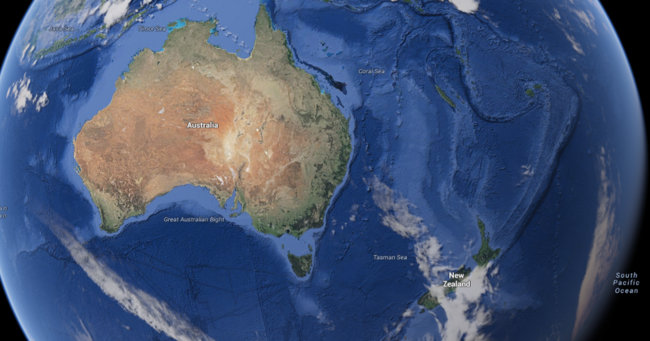(Source: Asia Radio Today via Mark Little)
As Radio Australia cuts shortwave services, RNZI becomes the voice of the Pacific
Radio New Zealand International (RNZI) continues to serve people across the Pacific region, delivering essential day to day news and information and providing a vital lifeline in times of natural disaster, as Radio Australia closes its international shortwave transmission service to Papua New Guinea and the Pacific.
Emphasising the importance of RNZI’s 25-year relationship with New Zealand’s Pacific neighbours, RNZ CEO, Paul Thompson said: “Remote parts of Papua New Guinea, Solomon Islands and Vanuatu who may be feeling the loss of the ABC can rest assured RNZI will continue to provide independent, timely and accurate news, information and weather warnings as well as entertainment to its Pacific listeners.”
Australian Broadcasting Corporation’s decision to switch off its shortwave services as a money saving measure has already drawn criticism and protests from a number of groups in Australia.
Read more at: http://www.asiaradiotoday.com/news/radio-australia-cuts-shortwave-services-rnzi-becomes-voice-pacific © Radioinfo.com.au
In truth, RNZI has always done a fabulous job of covering the Pacific islands with news and information. I’m happy to hear they plan to stick around.


Facebook and social media is fine until the data systems drop out in a severe weather or other extreme event.
Even satellite /Sat phone are not a reliable system.
One cheap small battery powered radio can pickup a number of transmissions from a distant source.
Hurricane Katrina on the Alantic coast of the US left hundreds of thousands without power and data systems were disrupted or non existant, much of the emergency comms was left to HF/VHF and UHF radio transmission and portable radios became prime information access.
Recommendations by civil authorities in the US for disasters is to have portable radios as the ptime information backup.
In an area the size of the Pacific SW is the sensible option.
The sales of inexpensive Chinese SW radios throughout the world is surprisingly high so someone is buying them and listening.
Where I live on the end of some very average copper phone lines our internet drops out or goes down on a regular basis and cell phone coverage is marginal and fails when we get rain or heavy cloud/wind.
Remote regions still rely on radio!
48 here and use Facebook, even my Mum who is in her 80’s uses it I was talking to a Bangladeshi guy at work last week about listening to BB, he said something along the lines of”we are a poor country we only have old technology”. I was trying to encourage him to listen in but he had no interest whatsoever. He showed me a multi lingual video on Youtube of his National Anthem sung by Russians, Brazilian etc. Social media and inexpensive data plans is killing SW.
Meanwhile the Guthrie woman tells us where the ABC is going…
‘She launched a facebook messenger news service in her speech, telling the audience: “One very exciting way we are collaborating to reach our audiences is through the launch of a dedicated news service with third-party provider Chatfuel and available on Facebook Messenger which goes live in time for the Melbourne Cup next week.”
Facebook? Facebook is evil……..
Read more at: http://www.asiaradiotoday.com/news/there-no-mass-media-now-abcs-michelle-guthrie © Radioinfo.com.au
She also seems to be ignoring all of us that are over the age of 40….
The Pacific has its own SW stations. I have worked in remote areas of PNG and never met a SW listener among the nationals.
They all rely on the free internet channels hosted by the Digicell network. Digicell has FREE Facebook, free access to News sites without using the data allowance on your mobile phone.
The closing down of R’ Australia’s Pacific service appears to be a clear indication of the importance the Australian LNP goverment places on its relationship with its Pacific neighbours and remote Australian who have few reliable souces of media available to them.
Full marks to the NZ govt for maintaining an important independent voice for its neighbours and now the only local signal available to many remote Australians.
listen to the call of that bird at 1300 gmt on 7355khz. Defintely the voice of the Pacific.